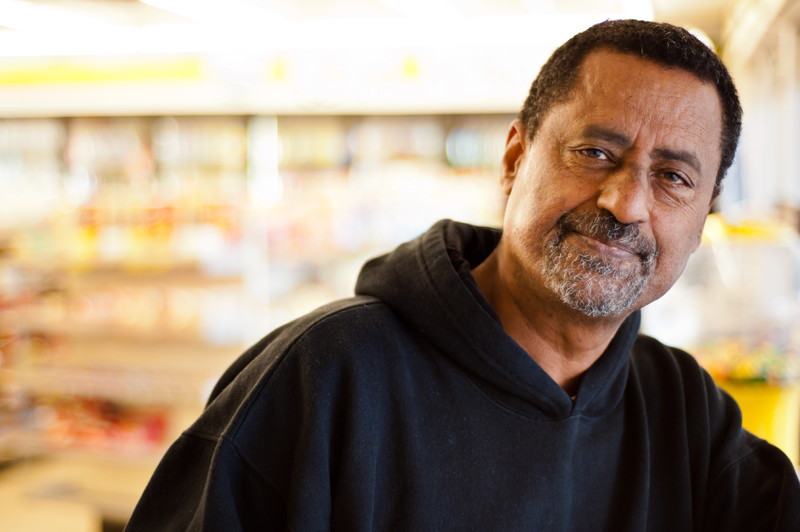One small pin
Ali Saeed relates his experience as an Ethiopian political prisoner and activist
Torture, imprisonment and death sentences were amongst the tribulations Ali Saeed and other members of the Ethiopian People’s Revolutionary Party (EPRP) endured when living in Ethiopia.
On Nov. 16, Saeed will travel to Washington, D.C., from his home in Winnipeg to speak about Ethiopian human rights violations at the EPRP 39th Anniversary conference.
“If this event was happening in Ethiopia, the current government would have all the party members killed right away,” Saeed said.
Saeed notes he is not an EPRP spokesperson. At the conference, he will speak on behalf of the Solidarity Committee for Ethiopian Political Prisoners (SOCEPP).
In July 1984, Saeed, gaunt and malnourished, arrived in Winnipeg. A short time before the trip he had been waiting, barely clothed, on death row in a Somali prison cell.
Saeed had not expected to be released.
“I was in prison in Ethiopia and Somalia for seven years and four months for my association with the EPRP before they let me out,” he said.
A decade earlier, the EPRP helped depose Haile Selassie I, the overbearing Ethiopian emperor. In the late 1980s, the group fought against the fascist Derg regime. Presently, the group fights against Ethiopia’s nationalist government, which Saeed reports to be as brutal and oppressive as the former ruling bodies.
“If the government hears anything about EPRP members, they will be kidnapped and killed right away,” he said. “They will not even see a court.”
At the conference, Saeed will discuss the historical Ethiopian event known as the Red Terror, a violent political campaign that took place between 1977 and 1978 under the Derg regime. According to Amnesty International, the campaign took more than 500,000 lives.
“The main point of the event is to inform people about the Red Terror and what’s happening in Ethiopia now,” he said. “Believe me, if the current government had the chance, they would take even more than the Red Terror.”
Under its current government, Ethiopia retains more than 35,000 political prisoners. Additionally, many Ethiopians deemed politically threatening by the government, including students, simply disappear.
“Someone dressed normally comes to your door and says they just want to talk for five minutes,” Saeed said. “But they drag you into a vehicle and no one will see you again.”
Because of such circumstances, Saeed believes it is only a matter of time before an uprising takes place.
“When you have an overinflated balloon like Ethiopia, all it takes is one small pin to pop it,” he said. “Soon, no doubt, you will see an uprising worse than Libya.”
Due to heavy government media censorship, it has become impossible to discuss these problems in any sort of public forum. Because The Uniter’s website is not yet blocked by the Ethiopian government, Saeed believes this article will help inform people of Ethiopia.
“Most websites and radio stations are banned because the government fears uprising,” he said. “This article will help ignite struggle, students in Ethiopia will read it online and distribute copies of it.”
Besides activist work, Saeed and SOCEPP spend a great deal of time housing and sponsoring refugees from Ethiopia, Sudan, Somalia and other African countries. To date, Saeed has sponsored 104 refugees.
“I help them come to Canada, I give them shelter and help them find a job so they can settle down for themselves,” he said.
Besides sponsoring a refugee, Saeed said the best way to help Ethiopia is to inform as many people as possible.
“Be a voice for people that do not have a voice,” he said.
Published in Volume 66, Number 11 of The Uniter (November 9, 2011)







